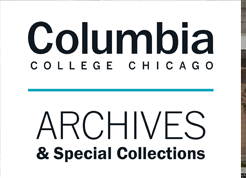Dr. Micah Salkind is the Deputy Director of The City of Providence Department of Art, Culture, and Tourism and Adjunct Assistant Professor of Humanities in the Department of American Studies at Brown University. As part of his work, he collaborates with large non-profit cultural institutions as well as emerging artists, designers, and creative entrepreneurs. He also serves on the boards of the Providence Public Library and Community MusicWorks and is an ongoing collaborator with dancers and scholars in Chicago’s Honey Pot Performance collective and Matthew Cumbie Projects’ “Growing Our Own Gardens” initiative.
A DJ, sound designer, and curator, he is the author of Do You Remember House? Chicago’s Queer of Color Undergrounds for which these oral history interviews were collected. The work "historicizes house music, the rhythmically focused electronic dance sound born in the post-industrial maroon spaces of Chicago's queer, black, and Latino social dancers. Working from oral history interviews, archival research, and performance ethnography, it argues that the remediation and adaptation of house by multiple and overlapping crossover communities in its first decade shaped the ways that contemporary Chicago house music producers, DJs, dancers, and promoters re-remember and re-animate house as an archive indexing experiences of queer of colour congregation."
Currently, the audio files and biographical information are available; transcripts will be added when complete.
-

Interview with Anthony 'aCe' Pabey
Micah Salkind
Anthony "aCe" Pabey, aka aCeb00mbaP, is a DJ, producer, rapper who co-founded Chicago’s legendary Men's Room—a queer sex-positive dance party that took place in iconic leather bars, defunct porn theaters, and other venues around the city. He is also known for performing with the group Banjee Report, and is a co-founder of the music label Futurehood, with rapper and performer Eric “Mister” Wallace II.
-

Interview with Bernard Johnson
Micah Salkind
Bernard Johnson is known for his work as a promoter in Chicago’s house scene during the 1990s. He is well-regarded for his work promoting gay nightlife for men of color with Rails Marketing Group, and for bringing together house and hip hop during Saturday night parties at Da Prop House. In particular, he programmed DJ Steve “Miggidy” Maestro in the club’s basement, and brought house DJs from Baltimore, Atlanta, New York, and other cities to Chicago.
-

Interview with Celeste Alexander
Micah Salkind
DJ Celeste Alexander grew up on the South Side of Chicago in Hyde Park. Attending Kenwood high school, she knew that her neighborhood’s cultural vitality was in part connected to the fact that it was a home for interracial couples in the 1950s and 1960s, as well as a campus town, set apart from the rest of the segregated city. A dark-skinned girl with short hair who was a self-professed late-bloomer and tomboy, Alexander sided with the harder-edged kids in her neighborhood, rejecting disco and embracing stepper culture. She remembers Kenwood’s school dances, where folks like Jesse Saunders played disco and top 40, but she wouldn’t begin to embrace the South Side’s genre-defiant dance music culture until she attended Loop Junior College (now Harold Washington Junior College) with Steve Hurley in the early ‘80s. Alexander had a big crush on Hurley; he taught her about hotmixing, but also that it wasn’t really for women. That challenge was enough to ignite a fire under her. Alexander would be damned if she was going to be told she couldn’t do something because she was a woman. Steve DuPlain and David Martin let her watch them spin, but it was Keith Fobbs who let her play on his home DJ setup. Keith was already Andre Hatchett’s protégé, and introduced him to Alexander. It wasn’t long before Hatchett was bringing Alexander to his gigs to watch him work. Her first gig spinning a party for David Risqué at Calvin Hollis’ International Game Room on 47th Street off of King Drive. Risqué/Gucci ultimately ended up featuring DJ Celeste at Sauer’s, but that night they were featuring Hobbs, Hatchett, and Steve Hurley. Alexander played in baseball caps and loose sweat clothes to conceal her gender while she was learning the craft, but eventually she became a fixture on the city’s teen house scene; a silent financial partner in The Power Plant; and joined an all-female hotmixing crew put together by Park Avenue Productions called the Fantastic Four (the group also included Rick Lenoire’s sister Kenya, Chrissy “The First Lady” Henderson, and a girl named Bird, plus sometimes fifth member Angela Hurley). In 1984 Alexander got pregnant, but that didn’t stop her from going out. Eventually Frankie Knuckles put his foot down and made sure that she wasn’t allowed into The Power Plant. In the years after her son’s birth, Alexander tapered her involvement in Chicago’s dance music scene, but in 2006 she reignited her career. Today she plays all over the city, reps Nu Bang Clan, and spins an internet radio show through Cyberjams.
-

Interview with Craig Cannon
Micah Salkind
Craig Cannon grew up in a musical family that taught him the importance of party culture and social dancing. He was one of the foundational DJs who laid the groundwork for the development of house music culture from underground disco culture in Chicago. He began his DJ career spinning at private parties held in the South Shore apartments of Black gay men, as well as at downtown Chicago hotels, and went on to spin at legendary underground discos like The Ritz and Jeffrey Pub.


